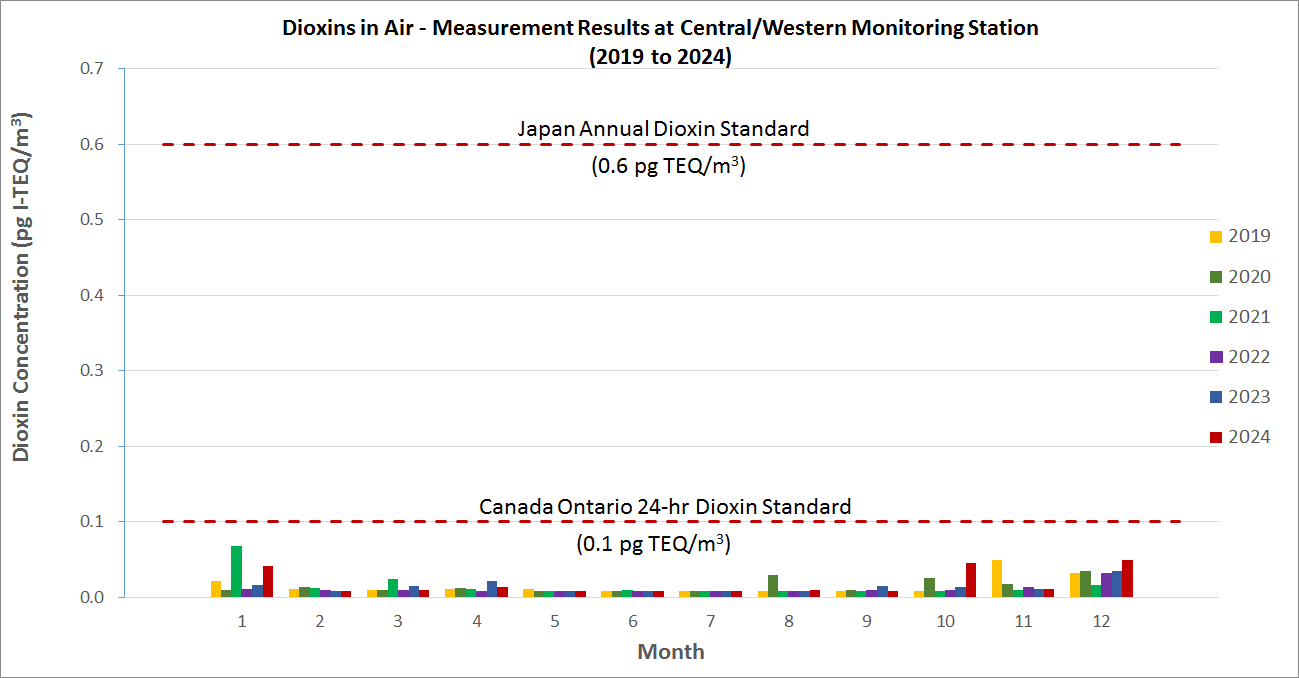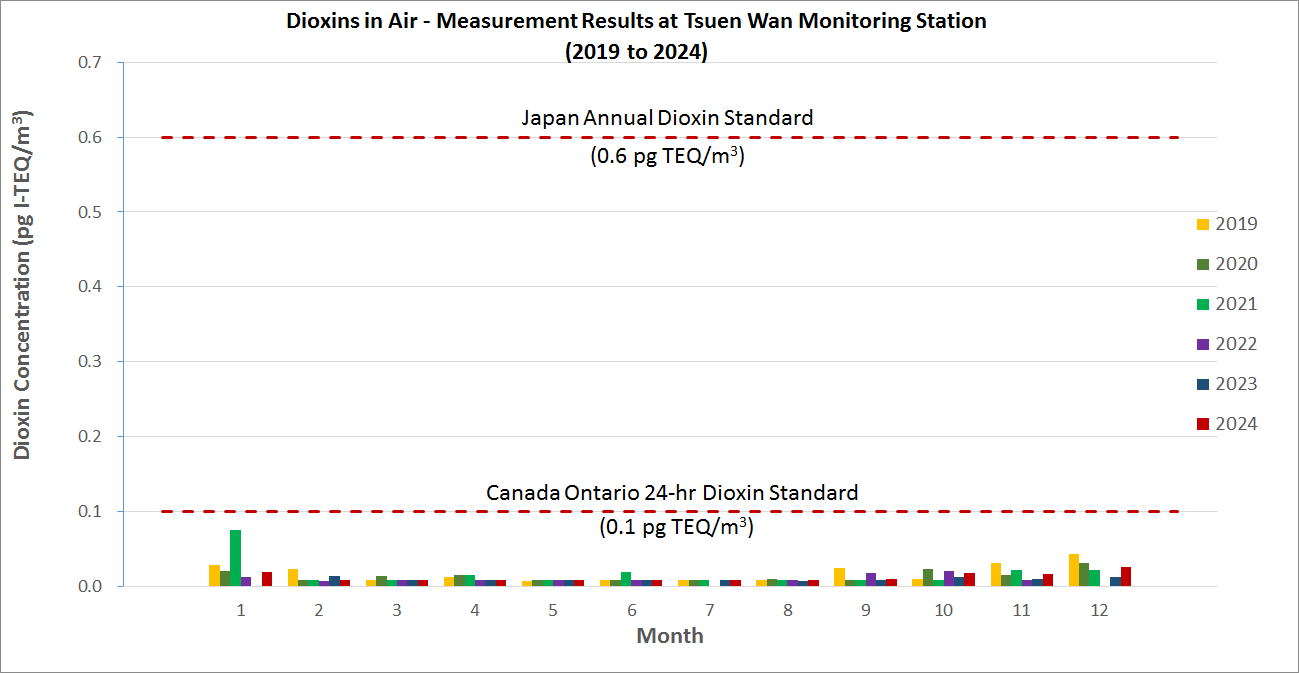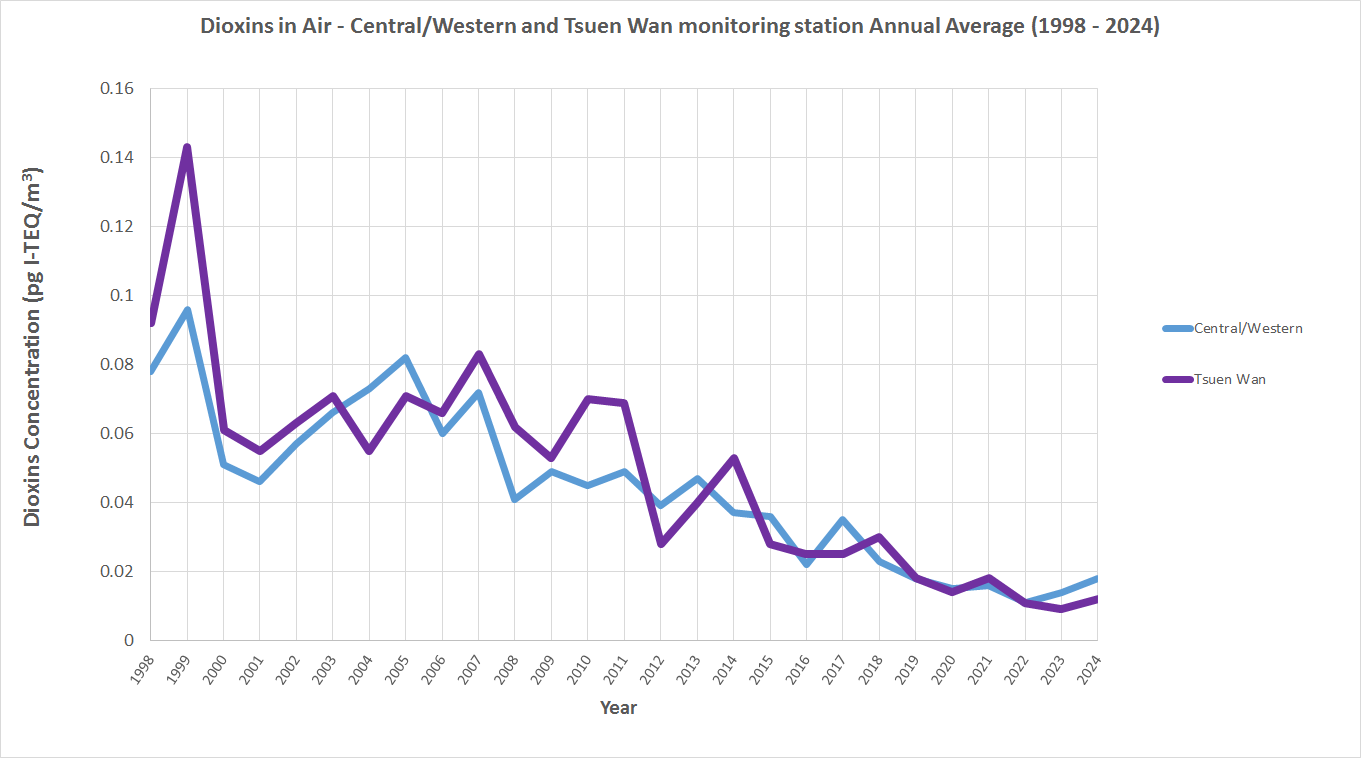Dioxins in Air - Measurement Results of 2024
| Month | Sampling Date | Concentrations | |
|---|---|---|---|
| Central/Western | Tsuen Wan | ||
| January | 12-01-2024 | -- | 0.019 |
| 25-01-2024 | 0.042 | -- | |
| February | 04-02-2024 | 0.008 | -- |
| 17-02-2024 | -- | 0.008 | |
| March | 04-03-2024 | -- | 0.008 |
| 20-03-2024 | 0.009 | -- | |
| April | 08-04-2024 | 0.014 | -- |
| 22-04-2024 | -- | 0.008 | |
| May | 01-05-2024 | -- | 0.008 |
| 21-05-2024 | 0.008 | -- | |
| June | 07-06-2024 | -- | 0.008 |
| 17-06-2024 | 0.008 | -- | |
| July | 05-07-2024 | -- | 0.008 |
| 18-07-2024 | 0.008 | -- | |
| August | 06-08-2024 | 0.010 | -- |
| 24-08-2024 | -- | 0.008 | |
| September | 02-09-2024 | -- | 0.010 |
| 18-09-2024 | 0.008 | -- | |
| October | 07-10-2024 | 0.045 | -- |
| 24-10-2024 | -- | 0.018 | |
| November | 10-11-2024 | -- | 0.016 |
| 19-11-2024 | 0.011 | -- | |
| December | 06-12-2024 | -- | 0.026 |
| 18-12-2024 | 0.049 | -- | |
| Annual Average | 0.018 | 0.012 | |

Dioxins in Air - Measurement Results at Central/Western monitoring station in the past 6 years (2019 to 2024)
NOTE :
The Trend
- The dioxins levels in Hong Kong are low and the trend is generally downwards. Due to seasonal factors, the dioxins levels during the winter months are in general higher than that in the summer months.
The Procedure
- The dioxins samples collected every month are sent to the Hong Kong Government Laboratory for analysis. The analytical work requires the use of sophisticated instruments and involves complex extraction processes which usually take at least two to three weeks. The Environmental Protection Department will post the data on the website once the report is available.
The Quantification Method
- The dioxins figures are 24-hour average concentrations in pg I-TEQ /m3, and are expressed as toxic equivalent (I-TEQ) concentration of 2,3,7,8 - Tetrachlorodibenzodioxin (TCDD). They are calculated based on the International Toxic Equivalent Factors (I-TEF) of the North Atlantic Treaty Organization (NATO/CCMS) using 17 types of dioxin-like compound of structurally closely related chemical families and having similar chemical properties. For congener concentrations that are lower than the estimated minimum sample detectable level (EMSDL), one half of the EMSDL is used in calculating the I-TEQ concentration.

